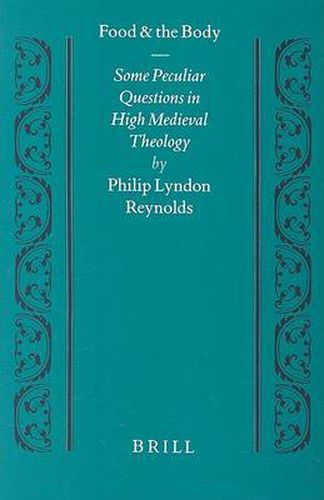Readings Newsletter
Become a Readings Member to make your shopping experience even easier.
Sign in or sign up for free!
You’re not far away from qualifying for FREE standard shipping within Australia
You’ve qualified for FREE standard shipping within Australia
The cart is loading…






Whether or not food passes into the truth of human nature was among the questions that scholastic theologians routinely disputed. Many twelfth-century theologians, including Peter Lombard, argued that the truth of every human body came entirely from Adam, and that food stimulated its growth but was not incorporated into it. Parisian masters in the thirteenth-century rejected Lombard’s position; some Oxford masters defended it, appealing to theories of light and prime matter. The first part of the book traces the origins of such questions in theology, medicine and natural philosophy. The second part analyzes their treatment and development in thirteenth-century theology. The study illumines theologians’ opinions about reproduction, fetal development, growth, nutrition, digestion, aging, corporeal identity, matter, physical quantity, the resurrection, and the relationship between theology and the natural sciences.
$9.00 standard shipping within Australia
FREE standard shipping within Australia for orders over $100.00
Express & International shipping calculated at checkout
Whether or not food passes into the truth of human nature was among the questions that scholastic theologians routinely disputed. Many twelfth-century theologians, including Peter Lombard, argued that the truth of every human body came entirely from Adam, and that food stimulated its growth but was not incorporated into it. Parisian masters in the thirteenth-century rejected Lombard’s position; some Oxford masters defended it, appealing to theories of light and prime matter. The first part of the book traces the origins of such questions in theology, medicine and natural philosophy. The second part analyzes their treatment and development in thirteenth-century theology. The study illumines theologians’ opinions about reproduction, fetal development, growth, nutrition, digestion, aging, corporeal identity, matter, physical quantity, the resurrection, and the relationship between theology and the natural sciences.